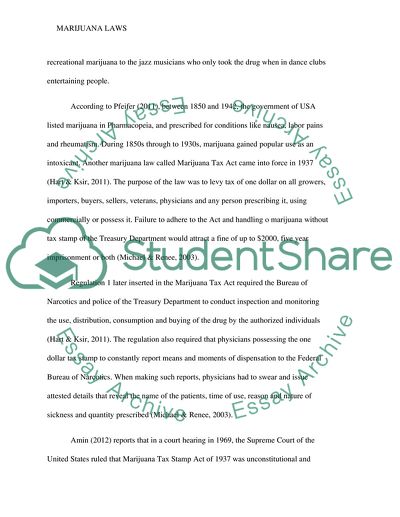Cite this document
(Legalization of Marijuana in the US Essay Example | Topics and Well Written Essays - 2636 words, n.d.)
Legalization of Marijuana in the US Essay Example | Topics and Well Written Essays - 2636 words. Retrieved from https://studentshare.org/law/1627566-legalization-of-marijuana-in-america-final-drft
Legalization of Marijuana in the US Essay Example | Topics and Well Written Essays - 2636 words. Retrieved from https://studentshare.org/law/1627566-legalization-of-marijuana-in-america-final-drft
(Legalization of Marijuana in the US Essay Example | Topics and Well Written Essays - 2636 Words)
Legalization of Marijuana in the US Essay Example | Topics and Well Written Essays - 2636 Words. https://studentshare.org/law/1627566-legalization-of-marijuana-in-america-final-drft.
Legalization of Marijuana in the US Essay Example | Topics and Well Written Essays - 2636 Words. https://studentshare.org/law/1627566-legalization-of-marijuana-in-america-final-drft.
“Legalization of Marijuana in the US Essay Example | Topics and Well Written Essays - 2636 Words”, n.d. https://studentshare.org/law/1627566-legalization-of-marijuana-in-america-final-drft.


